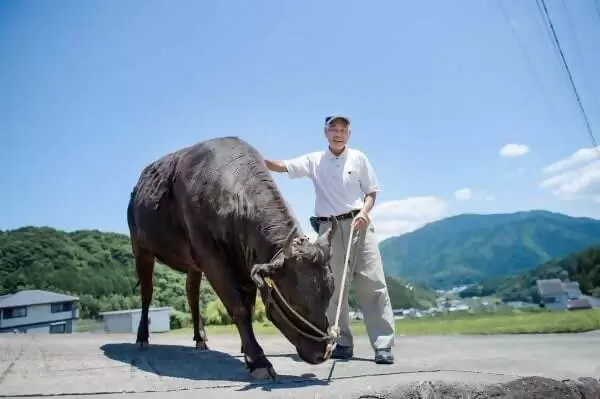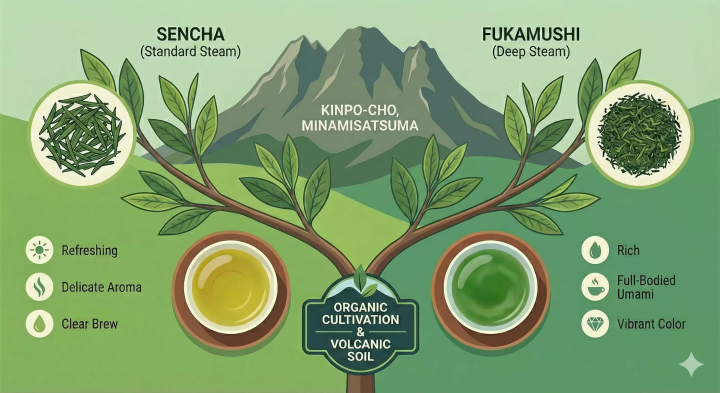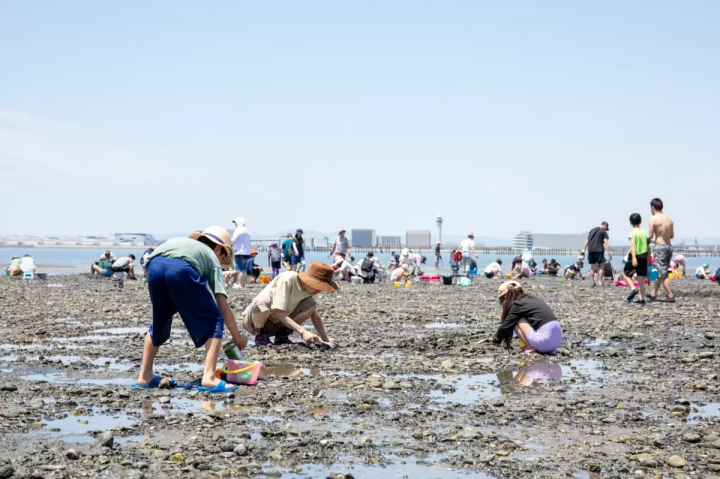13 Japanese Phrases for Shopping in Japan

We introduce 13 Japanese phrases that will be useful when shopping in Japan. Learn how to inquire about the price, how to ask for a certain product, how to get the same product in a different size or color, and more!
Enjoy Shopping Even More - With Japanese!
There are shops and restaurants in Japan where there are staff who can speak English or maybe Chinese, but there are still many places where the staff can only communicate in Japanese.
Today, we'll be introducing some convenient Japanese phrases that you can use when you find yourself in such a situation.
Finding A Shop
1. Kono henni hyakuen shoppu arimasuka? / Is there a 100-yen shop around here?
[kono henni hyakuen shoppu arimaska]
Kono henni ◯◯ arimasuka? / Is there ◯◯ around here?
[kono henni ◯◯ arimaska]
This phrase is used to ask whether there's something you're finding around here. There are many various types of shops, so you might want to ask whether the shop you're looking for is nearby.
[hya] is pronounced by making an [i] shape with your mouth, and breathing out as if to rub your upper jaw (if you've ever studied German, it's the "ch" sound in "ich") combined with the vowel [a].
Ex.
Kono henni kombini arimasuka? / Is there a convenience store around here?
[kono henni kombini arimaska]
Finding Something new
2. Korewa nandesuka? / What is this?
[korewa nandeska]
There are many unique things sold at Japanese shops. If you've found something interesting but don't know what it is or how to use it, you can ask "korewa nandesuka?"
Looking For Something
3. Sensu wa arimasuka? / Do you have fans?
[sensuwa arimaska]
The phrase for searching for something is:
◯◯ wa arimasuka? / Do you have ◯◯?
[◯◯wa arimaska]
You can make use of this phrase when looking for souvenirs.
Ex.
Shokuhin sampuru wa arimasuka? / Do you have food samples?
[shokhin sampuruwa arimaska]
Yukata wa arimasuka? / Do you have yukata?
[yukatawa arimaska]
When You Want To Try Something Out
You can also ask:
Tesuta wa arimasuka? / Do you have a tester?
[testa:wa arimaska]
Find The Perfect Item
4. Shiro wa arimasuka? / Do you have this in white?
[shirowa arimaska]
If there's something you like and want to know if they have it in a different color, you can again use "◯◯ wa arimasuka?" Insert whatever color you want into the blank.
The names of colors in Japanese are:
shiro[shiro](white), kuro[kuro](black), chairo[chairo](brown), gure[gure:](gray),aka[aka](red),pinku[pinku](pink), ao[ao](blue), midori[midori](green), kiiro[ki:ro](yellow), and orenji[orenji](orange).
But, you can also just say the English name slowly.
5. Okino wa arimasuka? / Do you have a larger one?
[o:ki:nowa arimaska]
This is a good phrase for when you've found something you like, but the size isn't just right.
You should also remember:
Chiisaino wa arimasuka? / Do you have a smaller one?
[chi:sainowa arimaska]
6. Shichaku shitemo iidesuka? / Can I try this on?
[shchak shtemo i:deska]
We recommend trying clothing items on before purchasing. This is because the Japanese sizes are generally smaller than those in Western countries. Be especially careful with items on sale, as most of the time they cannot be returned.
If "shichaku shitemo" is hard to pronounce, you can also just point at the fitting room and say "iidesuka"[i:deska](May I?) as well.
7. Sawattemo iidesuka? / May I touch it?
[sawattemo i:deska]
Compared to other countries, stores in Japan generally let you touch their products more freely.
However, if you want to hold a delicate craft or fragile item, you might want to ask the staff: "sawattemo iidesuka?"
"Mitemo iidesuka"[mitemo i:deska](Can I have a look?) will work too.
8. Oikura desuka? / How much?
[oikura deska]
This one is for asking how much a certain item costs. There are two different ways to indicate prices at Japanese stores: tax included and without tax. Some shops have price tags that are a little complicated to comprehend, so you can make use of this phrase.
If you want to make sure the price includes tax, you can ask:
Kore, zeikomi desuka? / Does this include tax?
[kore ze:komi deska]
Purchase An Item
9. Kore, onegai shimasu. / This one, please.
[kore onegai shimas]
Once you've chosen an item you want to buy, you can say "kore, onegai shimasu". "Kore kudasai" works as well and means the same thing, but "onegai shimasu" is more polite.
10. Kowakeno fukuro, onegai shimasu. / May I have a small bag?
[kowakeno fkuro onegai shimas]
When you want a small bag to put your souvenir in, you can use the above. Most shops in Japan will give you bags for free.
If this phrase is difficult to pronounce, you might say:
Purezento desu. Chiisai fukuro, arimasuka? / It's a present. Do you have a small bag?
[purezento des] [chi:sai fkuro arimaska]
11. Kadode onegai shimasu. / I want to pay with a card, please.
[ka:dode onegai shimas]
◯◯ de onegai shimasu. / ◯◯, please. (I want to pay with ◯◯.)
[◯◯de onegai shimas]
By saying this you can let the staff know how you want to pay.
You can use a transportation IC card like Suica or PASMO at many stores in Japan, including convenience stores.
Ex.
Suica de onegai shimasu. / I'd like to pay with a Suica.
[suikade onegai shimas]
Pasumo de onegai shimasu. / I'd like to pay with a PASMO.
[pasumode onegai shimas]
When You Want To Come Back
12. Nanji made aitemasuka? / What time are you open until?
[nanji made aite maska]
Even if you've found a great store, you might not have the time to thoroughly have a look at all the products. In a situation like that, you might want to ask the stores hours with this phrase and come back again later.
When you want to come back on another day, you can say:
Nanji kara aitemasuka? / From what time are you open?
[nanji kara aite maska]
By combining the two phrases, you can also ask:
Nanji kara nanji made aitemasuka? / From what time to what time are you open?
[nanji kara nanji made aitemaska]
When Leaving The Store
13. Arigato gozaimashita. / Thank you.
[arigato: gozai mashta]
If the staff helped you out or explained some things to you, you can thank them for their service upon leaving the store.
Review
1. Kono henni hyakuen shoppu arimasuka? / Is there a 100-yen shop around here?
[kono henni hyakuen shoppu arimaska]
2. Korewa nandesuka? / What is this?
[korewa nandeska]
3. Sensu wa arimasuka? / Do you have fans?
[sensuwa arimaska]
4. Shiro wa arimasuka? / Do you have this in white?
[shirowa arimaska]
5. Okino wa arimasuka? / Do you have a larger one?
[o:ki:nowa arimaska]
6. Shichaku shitemo iidesuka? / Can I try this on?
[shchak shtemo i:deska]
7. Sawattemo iidesuka? / May I touch it?
[sawattemo i:deska]
8. Oikura desuka? / How much?
[oikura deska]
9. Kore, onegai shimasu. / This one, please.
[kore onegai shimas]
10. Kowakeno fukuro, onegai shimasu. / May I have a small bag?
[kowakeno fkuro onegai shimas]
11. Kadode onegai shimasu. / I want to pay with a card, please.
[ka:dode onegai shimas]
12. Nanji made aitemasuka? / What time are you open until?
[nanji made aite maska]
13. Arigato gozaimashita. / Thank you.
[arigato: gozai mashta]
We hope your shopping experience becomes an even better one with these Japanese phrases!
For those already studying, we recommend taking online conversation lessons with CafeTalk (1,000 yen coupon included).
FAQ
What to say when entering a shop in Japan?
When entering a shop in Japan, it is customary for the shop staff to greet customers with the phrase "Irasshaimase", which is a polite way to welcome patrons. In response, as a customer, it is not necessary to say anything specific back to the shop staff upon entering. However, maintaining a polite and respectful demeanor is important, so a simple nod, smile, or "hello" in return is generally appreciated. This exchange helps set a courteous and welcoming atmosphere for your shopping experience in Japan.
What do they say in Japanese shops?
In Japanese shops, particularly retail establishments, it is common for shop staff to greet customers with the phrase "Irasshaimase", which is a polite and friendly way to welcome customers. This greeting is used to acknowledge customers as they enter the shop and to make them feel welcome. Additionally, you may hear shop staff asking if they can assist you by saying "Nanika o sagashi desu ka", which translates to "Can I help you find something?" These phrases are part of the standard protocol in Japanese customer service to create a welcoming and attentive environment for shoppers.
What to say when leaving a shop in Japan?
When leaving a shop in Japan, it is customary to thank the shop staff for their assistance and to bid farewell. A commonly used phrase when leaving a shop is "Arigatou gozaimashita", which means "Thank you very much" in a polite and respectful way. This expression shows appreciation for the service received and acknowledges the interaction with the shop staff. It is a courteous way to conclude your visit and leave a positive impression before exiting the shop.
How to buy things in Japan as a tourist?
When purchasing items in Japan as a tourist, a few key steps can enhance your shopping experience. Upon entering a store, acknowledge the staff's welcome and respond politely. Take your time browsing, seeking assistance when needed by saying "Sumimasen." When ready to make a purchase, indicate your selection by saying "Kore o onegaishimasu." Be prepared to use cash, as it is commonly used in Japan, although some places accept credit cards. After paying, express gratitude with "Arigatou gozaimashita" and receive your receipt, offering another "Arigatou gozaimasu" as a final thank you. These simple gestures and phrases can help you navigate shopping in Japan smoothly and courteously, ensuring a pleasant and culturally enriched experience as a tourist.
How do you reply to irasshaimase?
When shop staff greets you with "Irasshaimase" upon entering a store in Japan, it is not necessary to formally reply to this greeting. In this situation, you can simply smile, nod, or respond with a polite "Konnichiwa", which means "hello." Maintaining a friendly and respectful demeanor is key, as the shop staff's greeting is intended to make you feel welcome and create a pleasant shopping atmosphere.
What to say to a cashier in Japan?
When engaging with a cashier in Japan, employing polite and standard phrases can enhance your transactional experience. As you hand over your items for purchase, saying "Kore o onegai shimasu" politely indicates your intent to buy the selected items. During the payment process, offering your cash with "Kochira de" or presenting your credit card efficiently completes the transaction. Expressing gratitude upon receiving your change with "Arigatou gozaimasu" ensures a respectful and seamless interaction with the cashier, fostering a pleasant shopping encounter in Japan.
Read also
A Japanese teacher, calligrapher, singer in my room!








































![[Kagoshima] Overcoming 12 Years of Hardship: Walking through Minamisatsuma City, the sacred land where the monk Ganjin landed](https://resources.matcha-jp.com/resize/720x2000/2026/02/21-259481.webp)



